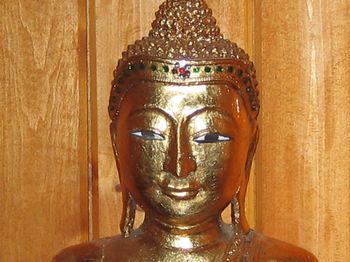 I am reposting my CT Watchdog entry from a couple of weeks ago now that Valentine’s Day is upon us and in case you missed it.
I am reposting my CT Watchdog entry from a couple of weeks ago now that Valentine’s Day is upon us and in case you missed it.
What have we come to as a culture where we need a holiday such as Thanksgiving to remind us to be grateful and a holiday such as Valentine’s Day to remind us to be romantic?
From the perspective of living in the moment, these should be staples of our daily diet — gratitude and love — not reserved for two days out of the year.
According to Wikipedia, we can blame Chaucer for the association of the St. Valentine holiday with romantic love. In 1382 he wrote this poetic line, “For this was Saint Valentine’s Day, when every bird cometh there to choose his mate.” (translated from the middle English).
A local radio station is hosting a contest entitled “Love is Live” where the winning participants will get the “wedding of their dreams” and get married on the radio, live, on Valentine’s Day.
In contrast, the poet, Rilke wrote about love and other difficulties. He suggested that our notions of love may be a bit idealized, if not downright mistaken. And if this was the case nearly 100 years ago when he penned the following, it is rabidly true today. He said,
It is a question in marriage, to my feeling, not of creating a quick community of spirit by tearing down and destroying all boundaries, but rather a good marriage is that in which each appoints the other guardian of his solitude and shows him this confidence, the greatest in his pow
er to bestow. A togetherness between two people is an impossibility, and where it seems, nevertheless, to exist, it is a narrowing, a reciprocal agreement which robs either one party or both of his fullest freedom and development. But, once the realization is accepted that even between the closest human beings infinite distances continue to exist, a wonderful living side by side can grow up, if they succeed in loving the distance between them which makes it possible for each to see the other whole and against a wide sky!
I included this quote in my book, Wild Chickens and Petty Tyrants: 108 Metaphors for Mindfulness, because I think it’s a healthy antidote to the metaphor of romantic love as fusion or merger. We are inundated with this image in advertising, television, and movies. It’s an inescapable part of the culture.
The shadow aspects of holidays such as Valentine’s day is the tyranny for the unattached or those healing from love’s wounds. What could be worse than being alone on Valentine’s Day? Perhaps having your love be with someone else? That might be worse. The holiday fuels a deep sense of FOMO (fear of missing out; click here to read more about FOMO).
As a celibate monastic, the Buddha didn’t have much to say about romantic love, although he certainly valued marriage and family for non-monastics. So, I’ll offer my own opinions. But first, biology.
We are built for love. As mammals, we have strong nurturing instincts, including the male members of the species. Much of our brain chemistry is devoted to attachment and love. Neurochemicals such as oxytocin and endorphins are integral to maternal behavior.
Our internal opioids are connected to the reward centers of the brain and the neurotransmitter dopamine. These brain effects make parents effective and also make us vulnerable to a range of obsessions. These can take the form of obsessive
compulsive disorder in the extreme, or gambling or substance use disorders. A psychologist friend of mine talks about “love madness” to describe the obsessive and consuming quality of romantic attachments.
Moving forward, it might help to appreciate how we are built — biologically for love. Taking this into account then, here are some guidelines:
- Love should be selfless; it should encourage us to transcend ourselves and our stories to make deep and genuine contact with another (be that human or animal)
- Relationship (especially romantic ones) can be a path to self-awareness. They can help us to see where we need to work on our issues (because they are so vividly triggered!). And they challenge us to be awake in every moment, especially when children are involved. Relationship can help us to put our money where our mouth is, so to speak, where mindfulness is concerned.
- Transcend the culture’s fused image of your “soul mate” or “true love” to embrace the reality of being with another human being that’s grounded in reality and offers the opportunity to develop into more compassionate human beings. Once the idealization is over, every love is imperfect and if we can accept this, relationship can become a mutual path of mature growth.

